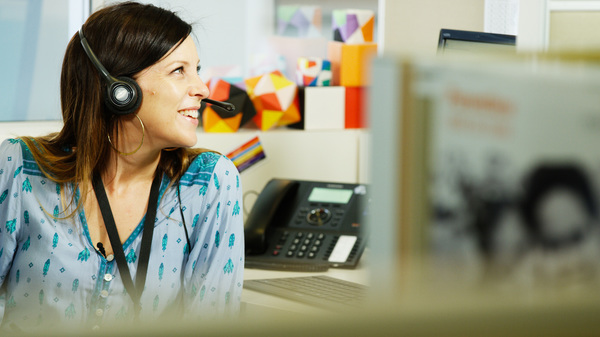
By Melissa Grant
Mental health is the number one reason young people are contacting Kids Helpline, with those aged 10-14 reaching out in unprecedented numbers.
In fact, roughly one in four youths who contacted Kids Helpline last year were worried about their own mental health or that of another person, according to a new report.
And around one in six counselling contacts, either by phone or internet, involved a child or young person seeking help for suicide concerns.
Kids Helpline virtual services manager, Tony FitzGerald, said the biggest surge in kids seeking support for mental health was in the 10-14 age group, with the number of contacts increasing 123 per cent in six years.
“What we are seeing is kids are getting younger and younger when they are reaching out to us for support. Sometimes they don’t realise it’s mental health related,” he said.
A combination of factors, from school pressures to bullying, are prompting them to seek help.
“There is lots going on for kids – it’s complicated. A lot of feeds into it. There’s a lot of pressure that kids are under these days,” Mr FitzGerald said.
“They are presenting across range of issues: anxiety, sleeping, things that are happening online, mood swings, self harm, depression and thoughts of suicide.”
The figures – coupled with the fact suicide is now the leading cause of children and young people in Australia – has prompted Kids Helpline to call for national approach to prevent young people taking their own lives.
Mr FitzGerald said early intervention was the key.
However, he said many kids with suicide and mental health concerns were often too afraid to seek help.
“Young people are concerned about reaching out to someone because they think they might be judged or labelled an attention seeker,” he said.
“We need strategies to help them reach out for support.”
Family relationship issues (18%) and emotional wellbeing (17%) were the other top reasons young people contacted Kids Helpline in 2017.
Of those who sought help for mental health concerns, around half were seeking support or strategies to managed a disorder, while 37% had symptoms of an undiagnosed mental health condition.
More complex issues have also meant Kids Helpline’s total counselling time with young people has increased by 72% in the past 10 years.
The 2017 Kids Helpline Insights report showed the service was contacted 10,636 times by young people with suicide concerns – a figure 22 per cent higher than five years ago. Of these contacts, 27 per cent were from children aged 14 and under.
While the surge in mental health related contacts can mostly be explained by innovations in the operation of Kids Helpline over the past two decades, the growth has mainly been in the 10-14 age category.
Kids Helpline CEO Tracy Adams said many in this age group were too young to access community services such as headspace.
“While not just one solution is needed to address this multi-faceted issue, a good start is ensuring that the community works together to create early prevention services that are accessible to those who are most at risk,” she said.
Kids Helpline 1800 55 1800 www.kidshelp.com.au
Lifeline 13 11 14 www.lifeline.org.au
beyondblue support service line 1300 22 46 36
headspace www.headspace.org.au
2017 KIDS HELPLINE INSIGHT REPORT
Key findings:
- 339,724 attempts to contact the counselling service with 157,656 answered
- 607,634 unique visitors to the Kids Helpline website
- 74% of youths who contacted Kids Helpline were female; 24 % were male; while 2% were intersex, trans and gender diverse
- Top concerns were mental health (26%), family relationships (18%), emotional wellbeing (17%), suicide-related (16%), dating and partner relationships (10%)
- 72% of contacts were from major cities
- Direct counsellor time with kids up 72% in the past decade
- 178% growth in webchat since 2012







